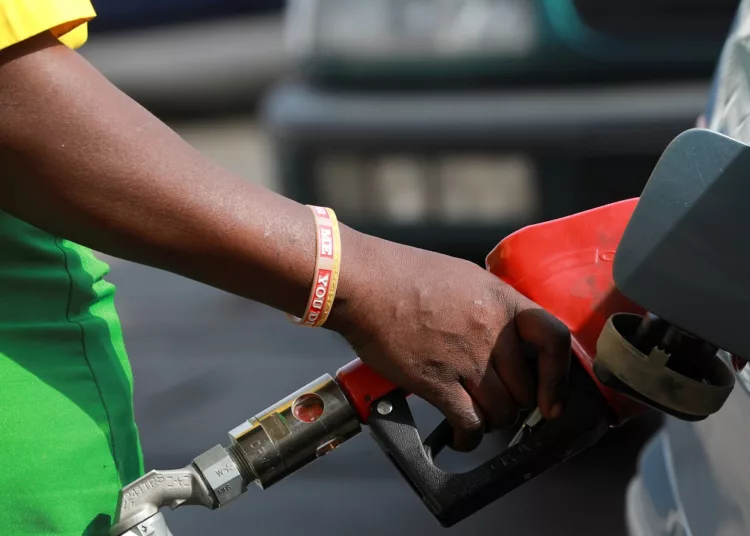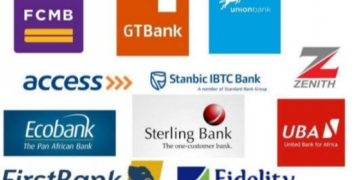Nigerian authorities are facing a resurgence of petrol smuggling as price disparities between Nigeria and its neighbours widen. Currently, petrol sells for approximately N701 per litre in Nigeria, while prices soar to around N1,787 per litre in countries like Benin and Cameroon.
This significant difference has incentivised smugglers to divert fuel across borders, leading to an estimated daily consumption of 67 million litres, much of which is believed to be smuggled.
Though the federal government had adamantly insisted that petrol subsidy was gone, NNPC on Monday, admitted that handling shortfalls in Premium Motor Spirit (PMS) importation costs, with underpayments on petrol projected to hit N6.8 trillion by December this year.
Speaking on resurgence of petrol smuggling, minister of state for Petroleum Resources (Oil), Heineken Lokpobiri has linked the lingering petrol smuggling to the disparity in fuel prices between Nigeria and its neighbouring countries.
The minister stated that the significantly lower price of PMS in Nigeria compared to other West African countries has made smuggling an almost unavoidable consequence.
Speaking at the 3rd edition of the Petroleum and Natural Gas Senior Staff Association of Nigeria (PENGASSAN) Energy and Labour Summit yesterday in Abuja, Lokpobiri said that despite the presence of law enforcement agencies, the economic incentive for smugglers remains high due to this price difference.
Discussing the summit’s theme, “The Future of Nigeria’s Oil and Gas Industry: Energy Mix, Energy Security, Artificial Intelligence, Divestment and Crude Oil Theft,” the minister emphasised the persistent challenges of energy security, oil smuggling and the need for greater investment in the sector.
He also stressed that Nigeria’s role in the energy security of West Africa remains crucial, and without increased oil production and strategic policy implementation, the region could face severe energy challenges.
“You agree with me that whatever happens in Nigeria affects the entire West African subcontinent, that is why whenever PMS is imported to Nigeria, it finds its way to the whole of West Africa, that is why smuggling cannot stop.
\So when smugglers take their products outside the country, even if you put all the policemen, all the customs men on the road, they are Nigerians, you and I know where the problem is”, he said.
Lokpobiri noted that while Nigeria is committed to the global energy transition and has taken gas as its transition fuel, the country cannot abandon its reliance on fossil fuels.
He argued that fossil fuels would remain a significant part of the energy mix for the foreseeable future, serving as a crucial source of revenue needed to fund the transition to greener energy sources.
But NNPC insisted that it was not paying subsidy, but only interfacing with the federal government to manage petrol importation and sorting out differentials when necessary.
Chief financial officer of the national oil company, Umar Ajiya, said yesterday in Abuja, “In the last eight or nine years, this company or corporation, as it was, has not paid anybody a dime or N1 as subsidy. No one has been paid a kobo by the NNPC in the name of subsidy and no marketer has received money from us by way of subsidy
“What has been happening is that we have been importing PMS or petrol, which is landing at a certain cost price, and the government is telling us to sell at half price. The difference between that landing price and pump price is what we call shortfall or you call it subsidy.
“And the deal is between the federation and ourselves to reconcile and sometimes they give us money, sometimes we make up.”
A recent report however showed that in addition, the national oil company told the president it will not be able to remit taxes and royalties to the federation account for now because of the subsidy payments, which it termed “subsidy shortfall/FX differential”.
The report said the cumulative petrol subsidy bill from August 2023 will hit N6.884 trillion by December 2024 — leaving NNPCL unable to remit N3.987 trillion in taxes and royalties to the federation account.
In his opening remarks, PENGASSAN President, Comrade Festus Osifo stated that Nigeria’s oil and gas industry was at a critical juncture, with unprecedented opportunities and challenges on the horizon.
He called for a diversified energy mix that includes renewable sources and innovative technologies,while stressing the need for robust energy security measures to ensure the nation’s stability and progress.
The PENGASSAN president also addressed the growing role of Artificial intelligence (AI) in the industry, suggesting that its integration could revolutionise efficiency and competitiveness.
On crude oil theft, which Osifo described as a “scourge” threatening the industry and national integrity, he reaffirmed PENGASSAN’s commitment to combating this issue through collaboration with stakeholders, enhanced security, and technological innovation.
The summit is expected to provide a framework for policy recommendations that could shape the economic future of Nigeria, particularly in light of recent government policies that have significantly impacted the Naira’s value and the cost of imported commodities.




